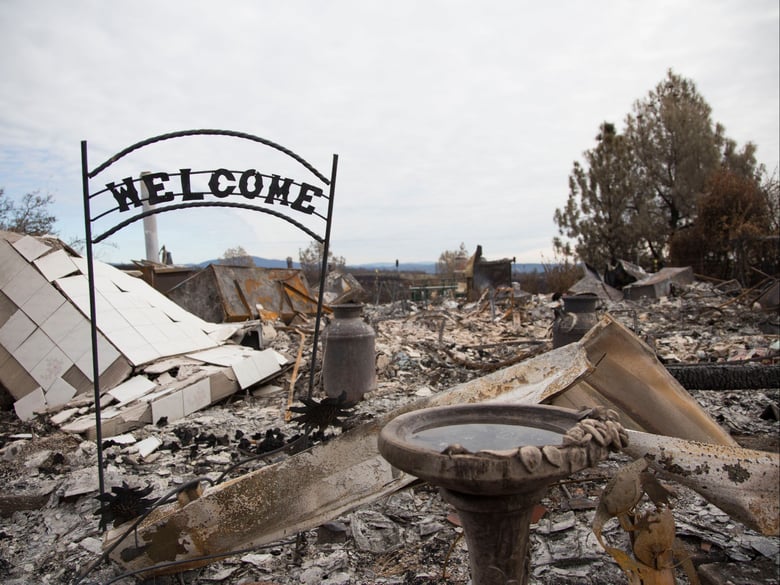Five Years After the ‘Camp Fire’ | 100th Science Cafe
Update RequiredTo play audio, update browser or
Flash plugin.

The town of Paradise and areas nearby were devastated by the Camp Fire that started on Nov. 8, 2018 in Butte County.
Andrew Nixon / Capital Public Radio
Five years after the Camp Fire, the deadliest and most destructive wildfire in California history. The Davis “Science Cafe” holds its 100th event.
Five Years After the ‘Camp Fire’
On Nov. 8, 2018 the Camp Fire ignited in Butte County and became the deadliest and most destructive wildfire in California history. In the five years since, survivors in Paradise– and surrounding communities like Magalia, Pulga and Concow– have overcome hurdle after hurdle to rebuild. Jennah Baker helped senior residents escape from Sunshine Assisted Living that fateful day. Jennah was part of a documentary with Insight host Vicki Gonzalez while at KCRA, that followed four families in the year after the Camp Fire. Jennah joins Insight to share what home feels like now.
Thousands of students, staff and teachers were impacted by the 2018 Camp Fire. Schools burned down or were seriously damaged, students and teachers fled, and the recovery process has been slow. But out of the ashes comes hope for a revival of the area’s education system, with new buildings and facilities and a return to class. Paradise Unified School District Superintendent Tom Taylor joins us to discuss the journey back to school and what the future holds for the community.
100th Science Cafe
On the second Wednesday of every month, the Davis Science Café provides a casual environment for scientists to talk about their research with the general public. On Nov. 8, the free series will be holding its 100th edition at the G Street WunderBar in Davis. Science Café host and founder Dr. Jared Shaw reflects on the history of the series. And guest presenter Dr. Crystal Rogers, Associate Professor in the Department of Anatomy, Physiology and Cell Biology at UC Davis, provides a preview of this month’s event “Why Are Faces Different? Genes, the Environment, & Embryonic Development.”